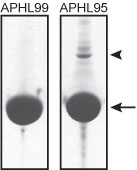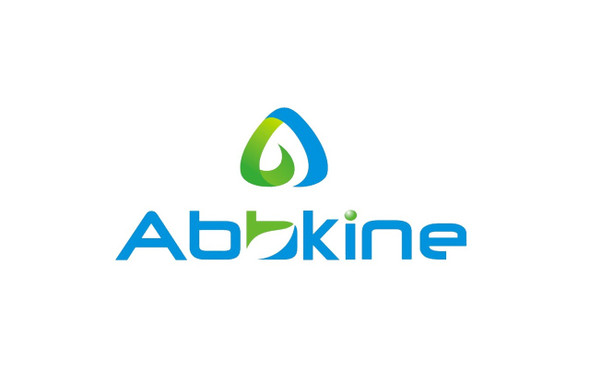Description
Product Uses Include
- Identification and characterization of non-muscle actin binding proteins
- In vitro actin polymerization studies
- Antibody standard for Western blot analysis
Material
Non-muscle actin has been purified from human platelets. Each unit of platelets used in the preparation of non-muscle actin has been found to be non-reactive by an FDA approved test for HBsAg, HBcAb, HIV-1/2 ab, HIV-1 RNA, HTLV I/II ab, HCV ab, HCV RNA, and syphilis. Each unit of platelets has been ALT tested with results less than an established cutoff. The isotype composition of non-muscle actin is 85% β-actin and 15% γ-actin. Non-muscle actin has an approximate molecular weight of 43 kDa. The product is provided as a lyophilized white powder. The lyophilized protein is stable for 6 months when stored desiccated to <10% humidity at 4°C. The protein should be reconstituted to 10 mg/ml with distilled water. It will then be in the following buffer: 5 mM Tris-HCl pH 8.0, 0.2 mM CaCl2, 0.2 mM ATP, 5% sucrose, and 1% dextran.
Purity
Protein purity is determined by scanning densitometry of Coomassie Blue stained protein on a 12% polyacrylamide gel. APHL99 consists of >99% pure non-muscle actin while APHL95 is >95% pure (see Figure 1).

Figure 1: Figure 1. Purities of human platelet non-muscle actin protein. 100 µg of >99% pure (APHL99) and >95% pure (APHL95) non-muscle actin were run on SDS-PAGE gels and stained with coomassie blue. The arrow indicates actin protein (~43 kDa), the arrowhead a gelsolin contaminant (~90 kDa). The minor impurities in the purified actins are predominantly actin binding proteins such as gelsolin and α-actinin. Protein quantitation was determined with the Precision Red Protein Assay Reagent (Cat. # ADV02)
Biological Activity
The biological activity of muscle actinis determined by its ability to efficiently polymerize into filaments (F-actin) in vitro and separate from unpolymerized components in a spin down assay. Stringent quality control ensures that APHL99 produces >85% F-actin and APHL95 produces >75% F-actin in this assay.
1 Review
-
superb packing
The packaging was presentable according to customer demand. Superb!






